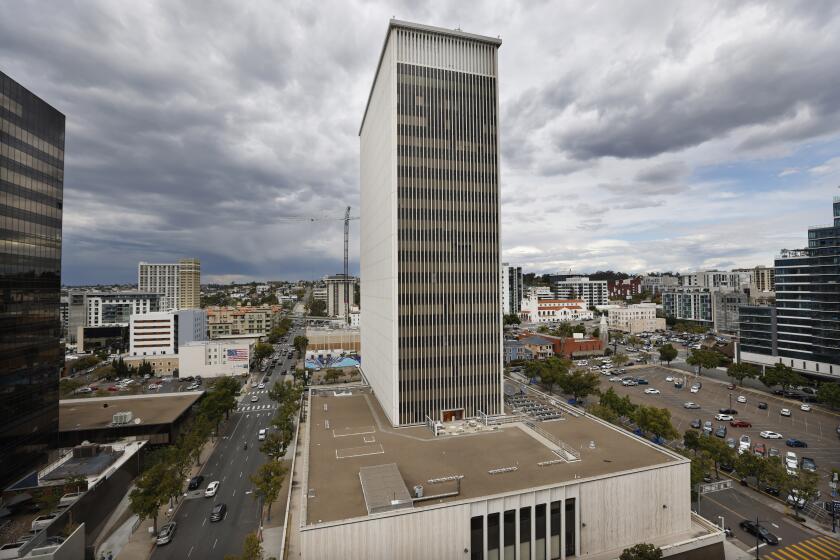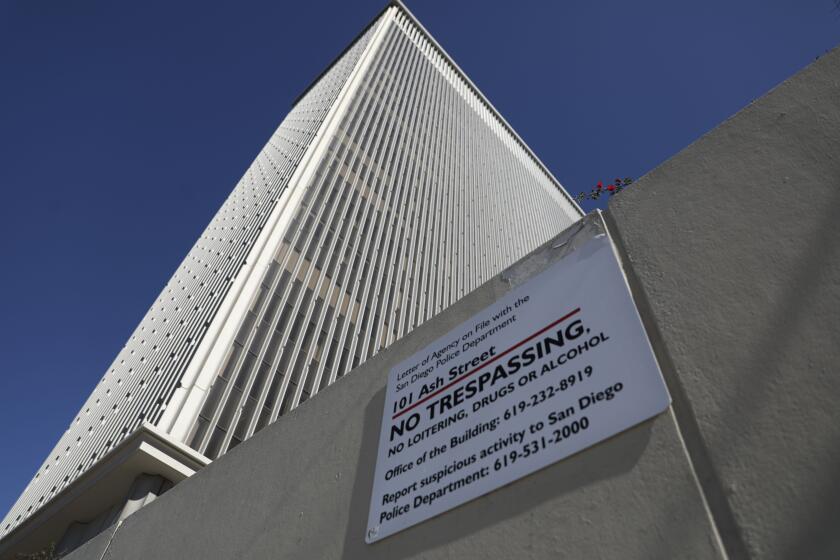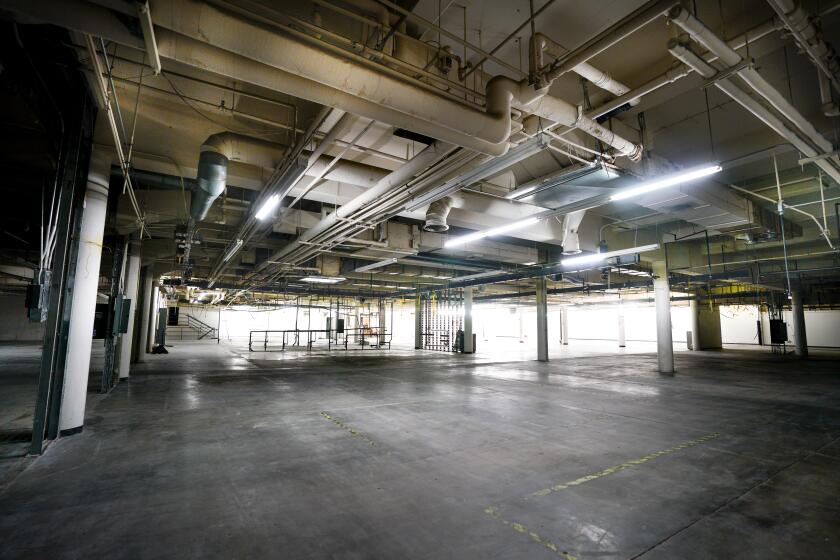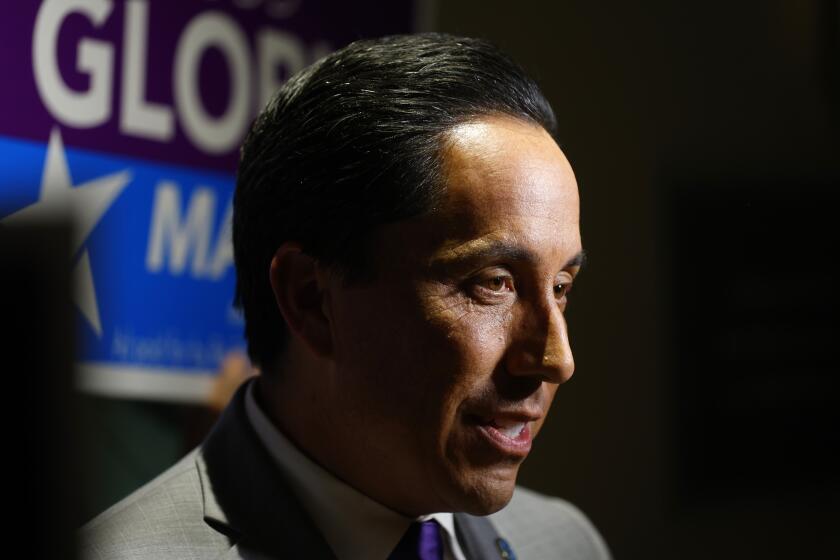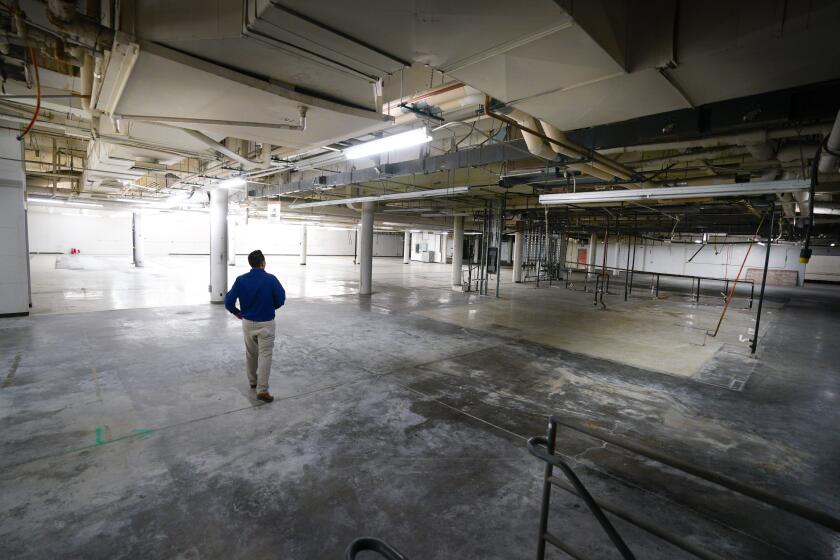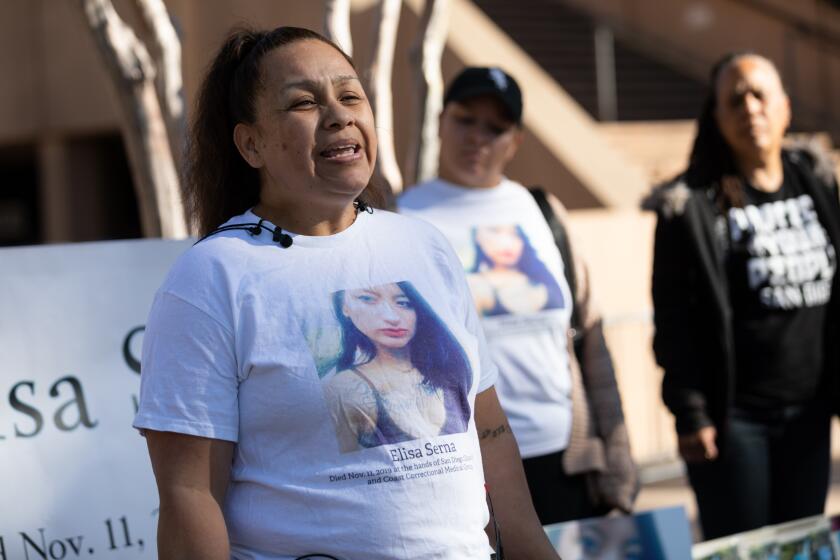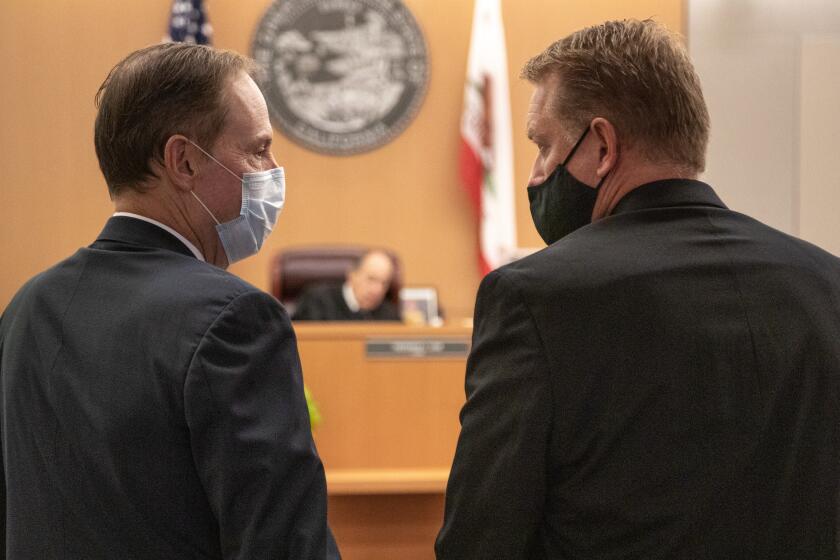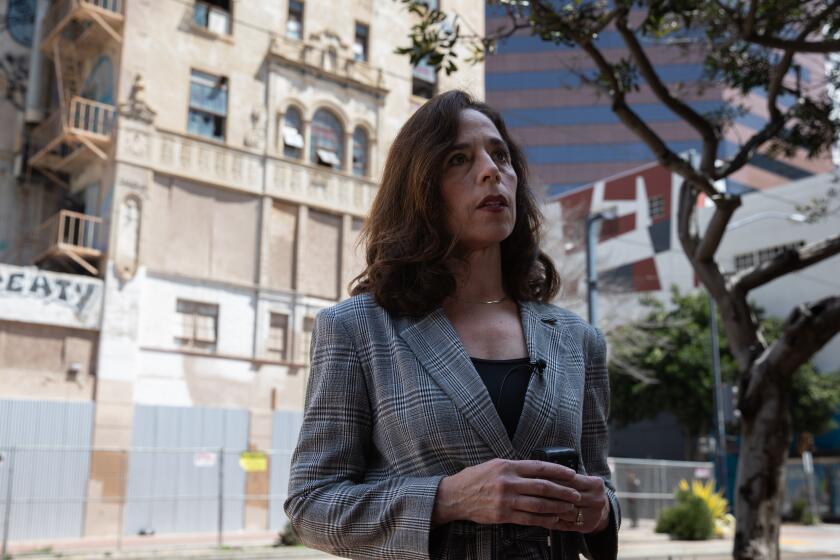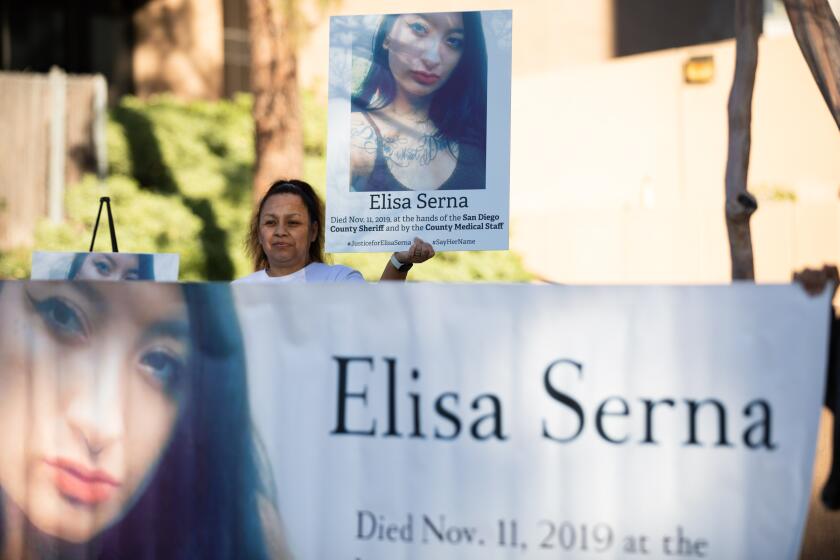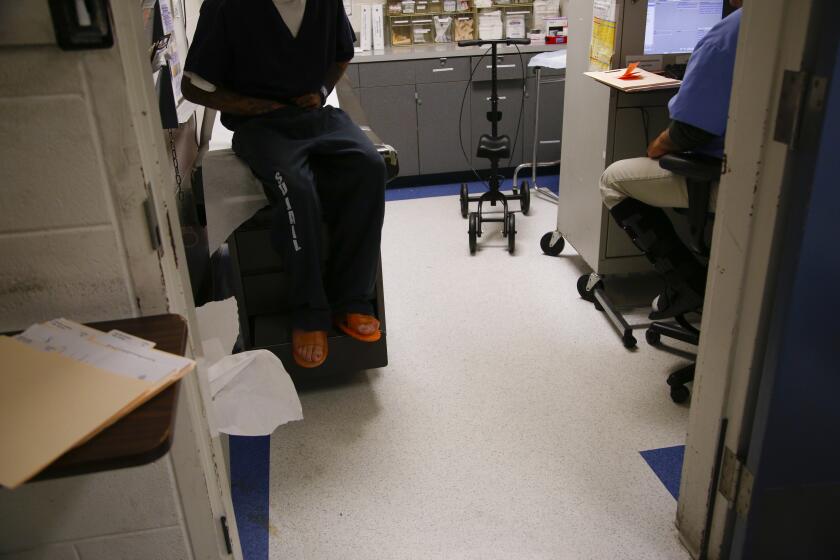San Diego Mayor’s Office to suspend all payments on Ash Street lease

Decision late Tuesday further muddies long-tainted deal and may bring more litigation
Amid legal claims, threats to public health and tens of millions of tax dollars spent to lease a vacant building, San Diego Mayor Kevin Faulconer decided late Tuesday to suspend monthly payments on the 101 Ash St. property.
The decision, which was not announced publicly, comes almost four years after the city agreed to acquire the former Sempra Energy headquarters in a 20-year lease-to-own arrangement that was costing the city $535,000 a month.
The Mayor’s Office wrote of the payment suspension in an overnight letter to 101 Ash LLC, the limited liability company apparently formed by seller-broker Cisterra Development to help close the deal. The decision is expected to spark additional lawsuits.
“The city is suspending its lease payments because the city cannot use the building for the intended purposes of its leasing and possibly for additional reasons,” Chief Financial Officer Rolando Charvel said in the 2-page letter.
City officials originally planned to move up to 1,100 employees into the 19-story office tower by July 2017, but a series of asbestos violations and required upgrades prevented them from occupying the property.
So far the city has paid more than $23 million on the lease and millions more to contractors, architects and outside lawyers.
It’s not clear whether the lender will foreclose on the property. Experts say it would cost more to make the building habitable for employees than the property is worth. Even knocking the building down and rebuilding from scratch is cost-prohibitive, they said.
Neither Cisterra nor former majority building owner Sandor Shapery immediately responded Wednesday to requests for comment.
The decision to stop paying the monthly lease throws the Ash Street acquisition further into disarray months before Faulconer leaves office — and voters decide whether Councilwoman Barbara Bry or state Assemblyman Todd Gloria will succeed him.
Bry has sharply criticized the Ash Street deal as an example of poor leadership and blamed Gloria for supporting the project in 2016, when he was on the San Diego City Council.
Gloria countered that Bry voted with the council majority in 2018 to spend an additional $30 million to renovate the mid-century high rise immediately north of city hall.
In his letter Tuesday, Charvel cited a lawsuit San Diego resident John A. Gordon filed last month against the city, Cisterra and Shapery. The San Diego Superior Court case accused the city of actively wasting public funds and sought an injunction to halt the payments.
“Additionally, the city is reviewing the lease agreement to assess its compliance with state law,” wrote Charvel, who is named in the lawsuit.
The San Diego chief financial officer also referenced a section of the California constitution that prohibits any city, county, school board or other municipality from incurring long-term debt without the approval of two-thirds of voters.
This is the same argument put forward by Gordon’s legal team, San Diego lawyers Lawrence Shea, Michael Aguirre, Maria Severson and Los Angeles litigator Thomas Girardi. Aguirre is a former San Diego city attorney.
Gordon’s lawyers welcomed the mayor’s decision to cut bait on the Ash Street property.
“We are pleased to see the city’s stopping payments —a first step to protecting the public,” Severson said by email Wednesday. “We hope the landlord and seller can work towards helping to solve the problem instead of casting threats.”
The letter Charvel wrote to 101 Ash LLC was sent to Faulconer in a single-page memo, copies of which were provided to the mayor’s senior aides and a lawyer from the City Attorney’s Office.
The memo, first reported by the Voice of San Diego, was not addressed to members of the City Council, who have complained over the past two-plus years that the Mayor’s Office deliberately withheld critical information from them about the Ash Street property.
During a heated council meetinglast month, when council members were told the building renovations would cost an additional $115 million and take four more years to complete, Councilwoman Vivian Moreno called the whole transaction an outright crime.
“This could not have been the result of incompetence; this was a deliberate fraud,” she said. “This was clearly fraud and we should not be afraid to say so.”
The City Council last month refused to approve any additional funds for the Ash Street high rise, and demanded monthly updates from the Mayor’s Office going forward.
At the same meeting, an independent lawyer hired by the Mayor’s Office warned the council that the agreement between Cisterra and the city was heavily lopsided in favor of the seller-broker and suspending the lease payments would jeopardize the city.
“A decision to claim that (the landlord) committed fraud or that there is some legal method to stop the payments because of dissatisfaction … poses, I think, great legal risks to the city and is something that I would urge the council to be very, very careful about,” lawyer James Parker testified.
The mayor’s decision to suspend payments on the former Sempra headquarters came days after a lawyer for 101 Ash LLC warned Gordon’s lawyers that his lawsuit lacked any merit.
“One fundamental and incurable flaw in Mr. Gordon’s complaint is that it seeks to allow a single citizen to arrogate the executive discretion vested by law in the city of San Diego,” La Jolla attorney Michael Riney wrote in a letter last Friday.
“There are multiple separate and independent reasons why no rational municipality would authorize the pursuit of a civil fraud case against (the) landlord under the facts of this matter,” he added.
The Mayor’s Office first asked the City Council to approve the lease-to-own contract in October 2016 — before Bry was elected to the council or Mara Elliott was elected city attorney.
The deal plainly stated the city would assume all responsibility for the condition of the building. The words “AS IS” were printed in capital letters on the first page of the agreement.
City officials told the council the property was a Class A building that needed only a $10,000 power-scrubbing before hundreds of workers could move in. They said the deal would save $43 million or more by consolidating city employees into a new building and avoiding future lease payments on other downtown property.
But design changes and renovations exposed serious deficiencies in the property condition and the Mayor’s Office was forced in 2018 to request $30 million in additional funding to complete the needed upgrades.
Last December, the city announced the renovations were complete and moved hundreds of employees into the building despite a series of asbestos violations issued by county air regulators last year.
By January, Faulconer reversed course and evacuated the Ash Street property. He also ordered an independent review of what went wrong.
Meanwhile, more than 20 employees and construction workers filed claims or lawsuits against the city for alleged exposure to asbestos, which is known to cause cancer.
The subsequent report from the law firm Hugo Parker concluded that city officials failed to perform any independent review of the property and instead relied on representations from Cisterra that the building was in good shape.
The same analysis criticized Cisterra’s role in the transaction, saying the development company acted more as a broker than a seller.
Months before the city signed the lease with Cisterra, the development company reached a deal with Shapery to market the property to city hall, either for purchase or lease.
Shapery has previously said that Faulconer apparently wanted to work through Cisterra to avoid the appearance of any conflict of interest because Shapery’s minority partner, Douglas Manchester, was one of the mayor’s major donors.
City officials disputed Shapery’s description of Faulconer’s reasoning, saying the Mayor’s Office properly disclosed the owners of the building at the time to the City Council and that it was widely known that Manchester had been a former owner of the building.
Manchester bought 49 percent of the building for $20 million in 2016, and in January 2017 received a $25 million payment from Shapery when the Cisterra deal closed.
Get Essential San Diego, weekday mornings
Get top headlines from the Union-Tribune in your inbox weekday mornings, including top news, local, sports, business, entertainment and opinion.
You may occasionally receive promotional content from the San Diego Union-Tribune.

